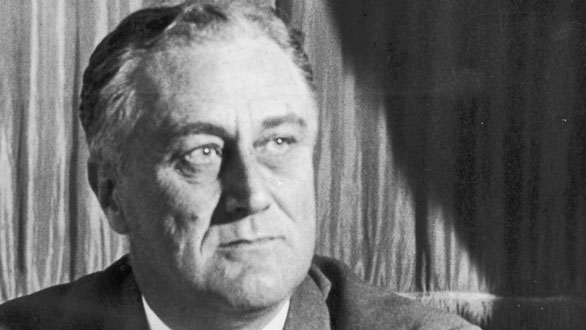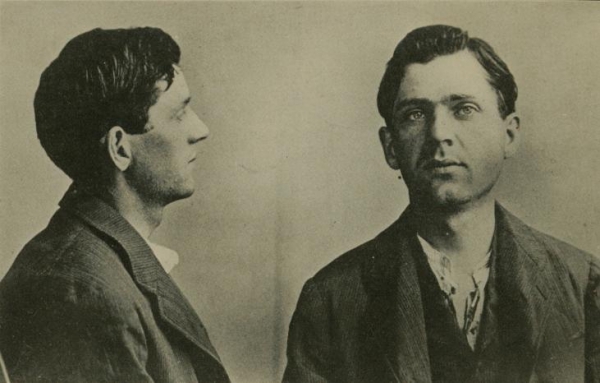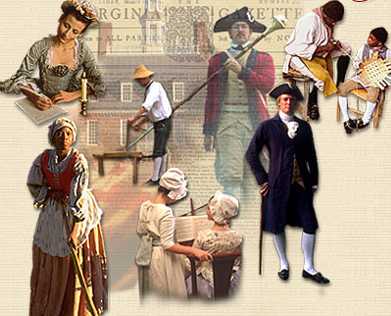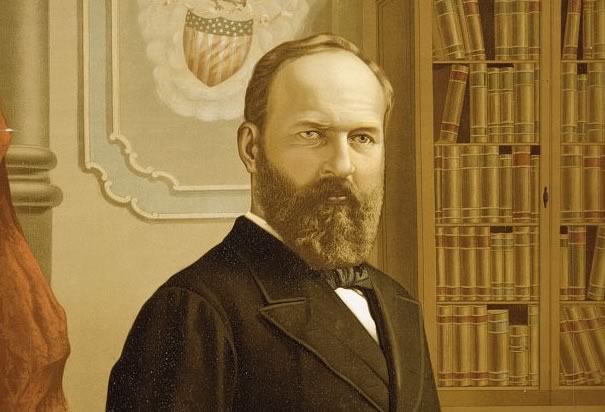- Roosevelt administration implements economic safeguards to revive U.S. economy
- U.S. government expands role as employer of and provider for U.S. citizens
- Tensions begin to rise in Europe as Germany once again asserts itself
- 1930 Smoot-Hawley Tariff raises taxes on almost 20,000 items; some economists argue that tariff worsened Great Depression or that stock market crash of 1929 was in part caused by anticipation of this act becoming law
- 1932 Reconstruction Finance Corporation provides loans to struggling businesses and state and local government
- Bonus Army of World War I veterans marches on Washington, D.C., demanding compensation but are rebuffed by force
- Franklin Delano Roosevelt elected 32nd president
1933 U.S. unemployment rate reaches 25%; Roosevelt proclaims five-day bank holiday
Glass-Steagall Act separates activity between commercial banks and investment banks
FDR appoints first-ever female cabinet member, Secretary of Labor Frances Perkins
FDR gives first “fireside chat” on radio; tradition continues until 1944
FDR’s first 100 days in office see creation of countless jobs designed to pull nation out of Depression; seen as perhaps most productive 100 days of any presidency
Unemployment Relief Act creates Civilian Conservation Corps to employ destitute Americans in conservation and other public works projects
Agricultural Adjustment Act controls production of crops, compensates farmers for cooperation
Tennessee Valley Authority established to construct series of dams on tributaries of Tennessee River to generate electricity for region
Federal Securities Act passed; precursor to Securities and Exchange Commission
National Industrial Recovery Act sets nationwide business practices; establishes National Recovery Administration to manage industry recovery, Public Works Administration to employ jobless
20th Amendment shifts presidential inaugurations from March to January
21st Amendment repeals 18th Amendment (Prohibition)
Adolf Hitler becomes chancellor of Germany, promotes policies of Nazi Party
United States recognizes USSR, establishes diplomatic relations
FDR’s Good Neighbor policy seeks to improve relations with Latin America
Major New Deal Policies
- Emergency Banking Act (1933): Permits Reconstruction Finance Corporation to buy stocks of banks in trouble, infusing new capital; validates “bank holiday”
- Glass-Steagall Banking Act (1933): Establishes Federal Deposit Insurance Corporation to secure bank deposits
- Federal Emergency Relief Administration (1933): Provides work on building projects
- Civilian Conservation Corps (1933): Provides jobs related to conservation of natural resources
- Agricultural Adjustment Act (1933): Pays subsidies to farmers to limit production, which drives prices higher
- National Industrial Recovery Act (1933): Administers fair practice codes to businesses; creates Public Works Administration; declared unconstitutional 1935
- Securities Act (1933): Requires corporations to make public disclosure of financial information before issuing new stock
- Tennessee Valley Authority (1933): Builds and operates dams on Tennessee River, sells electric power generated by dams; important step in modernizing region
- Farm Credit Administration (1933): Provides easily accessible farm mortgages
- Home Owners Loan Corporation (1933): Provides easily accessible home mortgages
- Securities and Exchange Act (1934): Places securities exchanges under federal regulation and oversight; creates Securities and Exchange Commission
- Banking Act of 1935: Reorganizes Federal Reserve system
- National Youth Administration (1935): Provides jobs for Americans age 16–25
- Works Progress Administration (1935): Creates jobs related to infrastructure projects; also provides jobs for artists, actors, writers
- Social Security Act (1935): Creates unemployment and old-age funds, state grants to care for elderly, needy, and physically disabled; excludes approximately 80% of African Americans, however
- National Labor Relations Act or Wagner Act (1935): Creates National Labor Relations Board to regulate union elections and labor practices
- Fair Labor Standards Act (1938): Sets minimum wage, 44-hour work week
1934 Securities and Exchange Commission established
Wheeler-Howard Act (Indian Reorganization Act), partly repeals Dawes Act, restores some Native American tribal rights
Senator Huey Long organizes “Share Our Wealth” program that proposes large tax burden for wealthiest U.S. citizens
1935 Schecter Poultry v. U.S. ruling invalidates National Industrial Recovery Act, barring nationwide business standards
Emergency Relief Appropriation Act allows president to fund relief programs of his choosing; FDR allocates funds to Works Progress Administration
National Labor Relations Act (Wagner Act) supports union rights, protects collective bargaining
Social Security Act establishes funds for unemployed and elderly
Revenue Act raises personal income taxes on wealthy
First Neutrality Act prohibits arms shipments to wartime belligerents
George and Ira Gershwin opera Porgy and Bess debuts on Broadway
Italy invades Ethiopia
1936 Butler v. U.S. ruling finds Agricultural Adjustment Act unconstitutional
Margaret Mitchell publishes novel Gone With the Wind
Spanish Civil War begins; ends with Francisco Franco’s rise to power in 1939
Black sprinter Jesse Owens wins four track-and-field gold medals at Summer Olympic Games hosted by Hitler in Berlin
Germany reoccupies Rhineland
Rome-Berlin Axis formed between Hitler and Italian ruler Benito Mussolini
FDR reelected president
John Dos Passos completes final novel in U.S.A. trilogy
Second Neutrality Act prohibits U.S. from making loans to wartime belligerents
1937 United Auto Workers stages sit-down strikes
FDR gives foreign policy speech urging collective security and “quarantining” of aggressor nations
Zora Neale Hurston publishes novel Their Eyes Were Watching God
Japan attacks Nanking, China, killing more than 250,000 people, mostly civilians
Japan sinks gunboat USS Panay in China, formally apologizes afterward
1938 Congress of Industrial Organizations becomes independent union
Germany launches Anschluss with annexation of Austria
Thornton Wilder publishes play Our Town
Irving Berlin song “God Bless America” becomes national hit in rendition sung by Kate Smith
In Munich Pact, British prime minister Neville Chamberlain agrees to policy of appeasement, grants Czech territory of Sudetenland to Germany
1939 Germans and Soviets sign Nonaggression Pact
Germany invades Poland, starting World War II
United States repeals policy of military embargo toward wartime belligerents
Fourth Neutrality Act requires cash-on-delivery for trade with wartime belligerents
John Steinbeck publishes novel The Grapes of Wrath
Nathanael West publishes novel The Day of the Locust
USSR invades Baltic states
Credits: Sparknotes











